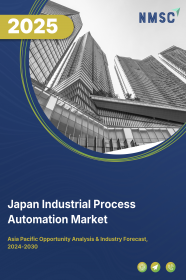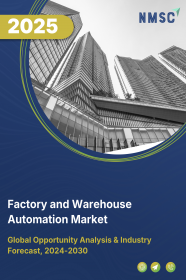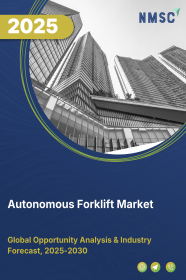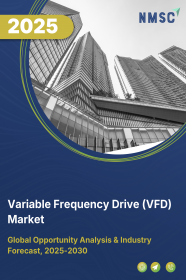
Japan Industrial Process Automation Market by Component (Manufacturing Execution System (MES), Distributed Control System (DCS), Programmable Logic Control (PLC), Supervisory Control & Data Acquisition (SCADA), Field Instruments, Industrial Robots, and Process Analyzers and Drives), and by End-User (Oil & Gas, Chemical & Refining, Energy & Power, Pulp & Paper, Metals & Mining, Pharmaceutical, Cement & Glass, and Others) – Opportunity Analysis and Industry Forecast, 2024–2030
Industry: Semiconductor & Electronics | Publish Date: 17-Feb-2025 | No of Pages: 123 | No. of Tables: 89 | No. of Figures: 54 | Format: PDF | Report Code : SE1000
Japan Industrial Process Automation Market Overview
Japan Industrial Process Automation Market size was valued at USD 1.69 billion in 2023, and is predicted to reach USD 3.49 billion by 2030, at a CAGR of 10.3% from 2024 to 2030.
The industrial process automation market represents the sector that delivers technologies and systems aimed at monitoring, controlling, and optimizing industrial operations. It involves integrating advanced computer technology, hardware, and software to automate critical processes such as inventory management, manufacturing, production, and quality control.
Key technologies driving automation in this market include sensors, programmable logic controllers (PLCs), human-machine interfaces (HMIs), and supervisory control and data acquisition (SCADA) systems. This market supports industries such as oil and gas, chemical processing, food and beverage, and pharmaceuticals, where automation is essential for enhancing efficiency, improving product quality, and ensuring workplace safety.
By reducing operational costs and minimizing human errors, industrial process automation helps companies streamline production processes, delivering higher output with greater precision. As businesses aim to improve productivity and remain competitive in an increasingly automated global manufacturing landscape, the demand for industrial process automation solutions continues to rise.
The Growing Automotive Industry Fuels the Growth of the Market
Japan’s automotive industry depends on industrial process automation market systems to improve production efficiency, reduce costs, and maintain high product quality. As one of the country's key industries, automotive manufacturers are increasingly using technologies such as robotics, PLC, and SCADA to streamline production processes.
These automation systems help reduce the need for manual labor, address labor shortages, and control operational costs. Additionally, automation ensures consistent product quality, that is essential in meeting the rising demand for vehicles, particularly electric vehicles. By adopting automation, manufacturers in Japan can increase productivity, stay competitive globally, and meet changing market demands. This growing use of automation in the automotive sector is driving the expansion of the industrial process automation market in Japan.
Government Initiatives Boost Market Expansion
Japan’s government is actively promoting the adoption of automation through policies such as the Robot Revolution Initiative and the Society 5.0 vision. These initiatives encourage the use of advanced automation technologies such as DCS, PLC, and SCADA to improve productivity, efficiency, and safety in various sectors.
Additionally, Japan’s energy and power industry faces challenges related to aging infrastructure and environmental concerns, creating a growing need for reliable automation systems to control and monitor complex processes in power generation and distribution. This further drives the demand for automation systems, accelerating the Japan industrial process automation market growth.
Lack of Standardization Hinders the Growth of Industrial Process Automation Market
The lack of standardization is a major challenge that can limit the growth of the industrial process automation market. Without common standards, vendors may develop proprietary systems that are hard to replace or upgrade.
This can result in vendor lock-in, where companies become dependent on a specific vendor’s technology, restricting their ability to switch to other vendors. Vendor lock-in often leads to increased costs, reduced flexibility, and less innovation, that negatively affect market growth. Companies might hesitate to invest in automation systems if they are worried about being tied to one vendor’s technology, further slowing the Japan industrial process automation market expansion.
Industry 4.0 Technologies Paving the Way for Future Automation Opportunities
The progress in industry 4.0 technologies, including the internet of things (IoT), cloud computing, and artificial intelligence (AI), is generating considerable opportunities for the industrial process automation market.
These advancements enable companies to gather and analyze vast amounts of data in real time, offering critical insights into their operations and identifying areas for improvement. As technology continues to advance, industry participants are partnering with tech-focused firms to create new solutions based on established technologies.
Competitive Landscape
Several key players operating in Japan industrial process automation industry include Siemens AG, Honeywell International, Schneider Electric, Mitsubishi Electric, Rockwell Automation, Emerson Electric Co., ABB Ltd., Omron Corp., Fanuc Corp., Toshiba Corp., and others.
Japan Industrial Process Automation Market Key Segments
By Component
-
Manufacturing Execution Systems
-
Hardware
-
Software
-
Services
-
-
Distributed Control Systems
-
Hardware
-
Software
-
Services
-
-
Programmable Logic Control
-
Hardware
-
Software
-
Services
-
-
Supervisory Control and Data Acquisition (SCADA)
-
Hardware
-
Software
-
Services
-
-
Field Instruments
-
Industrial Robots
-
Process Analyzers & Drives
By End-User
-
Oil & Gas
-
Chemical & Refining
-
Energy & Power
-
Pulp & Paper
-
Metals & Mining
-
Pharmaceutical
-
Cement & Glass
-
Others
Key Players
-
Siemens AG
-
Honeywell International
-
Schneider Electric
-
Mitsubishi Electric
-
Rockwell Automation
-
Emerson Electric Co.
-
ABB Ltd.
-
Omron Corp.
-
Fanuc Corp.
-
Toshiba Corp.
REPORT SCOPE AND SEGMENTATION:
|
Parameters |
Details |
|
Market Size in 2023 |
USD 1.69 Billion |
|
Revenue Forecast in 2030 |
USD 3.49 Billion |
|
Growth Rate |
CAGR of 10.3% from 2024 to 2030 |
|
Analysis Period |
2023–2030 |
|
Base Year Considered |
2023 |
|
Forecast Period |
2024–2030 |
|
Market Size Estimation |
Billion (USD) |
|
Growth Factors |
|
|
Companies Profiled |
10 |
|
Market Share |
Available for 10 companies |
|
Customization Scope |
Free customization (equivalent up to 80 working hours of analysts) after purchase. Addition or alteration to country, regional, and segment scope. |
|
Pricing and Purchase Options |
Avail customized purchase options to meet your exact research needs. |

















 Speak to Our Analyst
Speak to Our Analyst



















